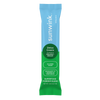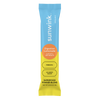13 Superfoods for Your Immune System: The Nurturing Diet

Nurturing your immune system comes with tons of benefits — those that go beyond fighting off colds and the flu. But can your diet really make a difference?
At Sunwink, we believe in the healing power of plants. Amongst them, there are a select few with tons of potential benefits for your health — known as superfoods.
In this guide, we’ll go over how your immune system works, how plants can help to support your immune health and our favorite superfoods for maintaining your immune function.
Read on for a complete guide to eating your way to better support your immune health.
What Exactly Is the Immune System?
Before we talk about ways to boost your immune function, let’s break down exactly what the immune system is.
At a basic level, we know that the immune system fights off bacteria, viruses, and other harmful organisms. But how does it do that?
Well, the immune system uses a large network of major organs (like the lungs), small body parts (like the nostrils), white blood cells, and antibodies. Together, they work to keep out foreign invaders and to fight any that enter your body.
Of the many parts that make up your immune system, these are perhaps the most well-known:
1. White Blood Cells
These are key players in a healthy immune response. They continuously move through the bloodstream, looking for foreign invaders like bacteria, viruses, and fungi. When they find something that’s not supposed to be in the body, they launch an attack against them.
There are many different types of blood cells, which includes B-cells, T-cells, and natural killer cells. They are made in the bone marrow but stored in blood and lymph. Because of their short lifespan (usually less than a day), the bone marrow is always producing them.
2. Antibodies
An antibody is a type of protein that’s produced by the body when it senses something harmful. This happens when the body recognizes a molecule called an antigen on the surface of bacteria or viruses. After that, antibodies begin to destroy these antigens.
3. Lymphatic System
The lymphatic system is made up of a network of tubes found all throughout the body. These tubes transport lymph, which contains white blood cells. The main goal of the lymphatic system is to carry nutrients to body tissues while removing their waste.
4. Skin
It may not be as obvious, but the skin is actually an incredibly important part of our immune system. After all, it’s the first barrier that invading pathogens have to go through. The skin even has its own immune system, with various cells that fight off bacteria and viruses.
5. Digestive Tract
Our digestive tract is home to trillions of different bacteria, which (ideally) live peacefully together and make it easy for us to digest food. But these bacteria also play an important role in our immune response.
The relationship between the microbiome and immunity is complex. Some researchers think that “good” bacteria in the gut can help to create antibodies, while others can signal to the body’s immune cells to improve their function.
While we certainly don’t have the full picture, we know that a healthy gut is super important for a strong immune system.
What Are the Benefits of a Strong Immune System?
We know that a healthy immune system keeps us from getting sick. But it does so much more than that.
In the first place, our immunity helps us to heal wounds — after all, the healing process is hugely impacted by white blood cells. The stronger your immune system, the quicker those nicks and scratches fade from your skin.
Your energy levels also get impacted by your immunity. If it’s not in top shape, then your body will want to preserve your energy to fight off foreign invaders. Unfortunately, this takes away from the energy that you can put into your job, your exercise routine, or your hobbies.
In some cases, the immune system can go completely haywire. Instead of attacking foreign substances, it can start attacking healthy body tissue, which is known as “autoimmunity.” Not only does this result in serious health conditions — think, for instance, rheumatoid arthritis — but it can also make it hard for the body to fight off harmful bacteria and viruses.
In sum, a healthy immune system can help fight off disease-causing pathogens, heal body tissue, keep up your energy levels, and prevent autoimmune disorders. This makes it super important to nurture it as much as you can.
One (delicious) way to do it? Superfoods! Read on to discover what they are and how they work to boost your immune system.
What Are Superfoods?
There’s no single food that can do it all for your health. To improve your wellness, it’s important to eat a healthy diet full of plants, seeds, and various sources of protein. But — of course — some foods are much healthier than others. For instance, a bowl of broccoli will do much more for your health than a plate of french fries.
But even amongst those so-called “healthy” foods, some can make more of an impact on your health than others.
Superfoods aren’t technically a category of foods. However, they’re generally seen as providing supreme health benefits if eaten in the right amounts.
Superfoods tend to be rich in the following:
- Antioxidants: These naturally-occurring compounds work by supporting the health of your cells. Antioxidants not only help us to look better (hello, glowing skin) but they have also been shown to support the skin against irritants.
- Vitamins: While you may already supplement with a multivitamin, it’s always better to get them from a natural source. When you get your vitamins from plants, you’re also getting tons of other compounds that can help them to get absorbed by the body.
- Minerals: Sodium, potassium, calcium, magnesium… These are all essential nutrients that have hundreds of functions in the body. Superfoods have them in much higher amounts than other sources.
Superfoods can be rich in many other compounds, like flavonoids, fiber, and fatty acids. For this reason, there are no set criteria for what makes something a superfood. But incorporating superfoods into your diet could potentially make a difference in your health.
Can Superfoods Really Support Your Immune Health?
Some superfoods can help to support your body’s immune processes — of which there are many.
For instance, foods that are high in zinc can help your body to produce more white blood cells. A healthy white blood cell count can ensure that your body has what it needs to fight off invading pathogens.
A superfood won’t single-handedly support your immune function. But they can support your body in small ways. By helping your body do what it does naturally, superfoods can help to build up the many parts that make up immunity.
Of course, how this happens depends on which compounds a superfood contains. In the next section, we’ll go over our favorite immunity-boosting superfoods and explain how they work.
13 Superfoods To Nurture Your Immune Function
1. Blueberries
These are the first on our list of superfoods because they’re delicious, widely available, and are chock-full of vitamins, minerals, and other plant compounds.
What makes blueberries a great immune booster is their high vitamin C content. Just a handful of these berries can provide you with about 20% of the recommended amount of this nutrient.
Plus, vitamin C is a powerful antioxidant, which can support your body during exposure to UV rays, air pollution, or cigarette smoke.
2. Elderberries
These dark purple berries are native to Europe, where they’ve been used for centuries to provide immune support. They’re a potent source of vitamins A, C, and zinc. As a potent antioxidant, they can help potentially protect your body from all sorts of damage.
Thanks to the many compounds that they contain, elderberries have anti-inflammatory properties.
3. Goji Berries
These bright-red berries are native to Asia, where they’ve been used for centuries to help minimize the appearance of signs of aging, support eye health, and maintain major organ functions.
We love goji berries for their high antioxidant content. Plus, one study found that goji berries can support your immune system in producing antibodies after taking a vaccine (which includes booster shots).
4. Fermented Dairy
Yogurt — a favorite breakfast item — provides the body with live “good” bacteria that can support a healthy microbiome. Eating more probiotic-rich foods can help to create a better balance between good and bad bacteria. This is especially important for anyone who’s ever taken antibiotics, as these tend to kill off all bacteria — even those that are beneficial.
5. Asparagus
While it’s important to get plenty of probiotics, it’s just as crucial to get prebiotics — which are essentially food for “good” bacteria. Asparagus is full of fiber, which can help support a healthy microbiome and support immune function.
6. Shiitake Mushrooms
A favorite of Traditional Chinese Medicine, shiitake mushrooms are a rich source of copper, selenium, zinc, vitamin B, and vitamin D. This essentially makes it a powerhouse of potential immunity-maintaining ingredients.
To boost the nutritional value of these mushrooms, it’s better to eat them cooked.
You can get similar potential health benefits from other mushrooms, such as lion’s mane and reishi.
7. Garlic
Not only does garlic make your meals 10 times more delicious, but it contains hundreds of sulfur compounds. These compounds are thought to directly attack and destroy bacteria. While sauteed garlic is delicious, it’s much more beneficial when consumed raw.
8. Oregano
Oregano is a natural antioxidant, anti-fungal, and antibiotic — which is exactly what your body needs to keep you healthy during an infection. Consuming oregano in oil form provides the most potential benefits to maintain wellness, but you’ll potentially benefit just as much from the herb in its fresh form.
9. Turmeric
This bright yellow root contains a special compound called curcumin, which can help maintain feelings of calm, support immune function, and promote overall wellness due to its anti-inflammatory properties. We also love it for its stunning hue in our tasty Turmeric Recover Sparkling Superfood Tonic.
10. Ginger
This superfood is a cold-season favorite. Ginger contains compounds called gingerols. Gingerols have strong antioxidant properties that can support your immunity.
While there needs to be more evidence on how exactly ginger works, it may help your body detox and maintain proper circulation. Get more ginger into your diet, and help reap the potential health benefits, with Detox Ginger Sparkling Superfood Tonic.
11. Pumpkin Seeds
Pumpkin seeds are rich in the mineral zinc, which plays a crucial role in immunity. Those who are deficient in zinc (even in small amounts) may experience digestive issues, rapid weight loss, skin problems, and severe infections.
Zinc is needed for the body to produce cells that are involved in the immune response. Plus, zinc can help the body “slow down” extreme inflammation when there’s an infection. While some inflammation is good for fighting off a pathogen, too much of it can be seriously harmful.
While zinc is mainly found in meat and seafood, we love pumpkin seeds because they’re easy to snack on and can be added to almost any meal — sweet or savory. Plus, they’re vegan-friendly!
12. Green Tea
Compared to other types of tea, green tea is high in an antioxidant known as epigallocatechin gallate (EGCG). This compound is thought to reduce whole-body inflammation during infection. Plus, it can support the function of white blood cells, allowing them to do their job more efficiently.
These effects are much stronger in matcha green tea, which has three times the antioxidant content of regular green tea. That said, whichever option you go for, you’ll still be reaping the health benefits of this immune function-supporting superfood.
13. Ashwagandha
Ashwagandha has long been used in Ayurvedic medicine for its tension-reducing effects. Also known as an adaptogen, some people believe that this superfood adapts itself to your body to support a healthy balance of stress hormones.
There’s tons of evidence backing up the stress-relieving effects of ashwagandha. Studies show that it can promote feelings of calm, supports bodily wellness, and maintains proper levels of stress hormones.
We love ashwagandha in our Hibiscus Mint Unwind Sparkling Superfood Tonic. It’s a great addition to cold water or smoothies.
Takeaways
Your immune system is seriously complex with tons of different parts. Superfoods can provide your body with the vitamins, minerals, and other healthy compounds your body needs to work its best.
To support your immune system, Sunwink has plenty of delicious superfood tonics and powders that can brighten up your day — and help you maintain and support your health.
Our Sources:
The Gut: Where Bacteria and Immune System Meet | Johns Hopkin Medicine
Biochemistry, Antioxidants - StatPearls | NCBI Bookshelf
The Amazing and Mighty Ginger - Herbal Medicine | NCBI Bookshelf






